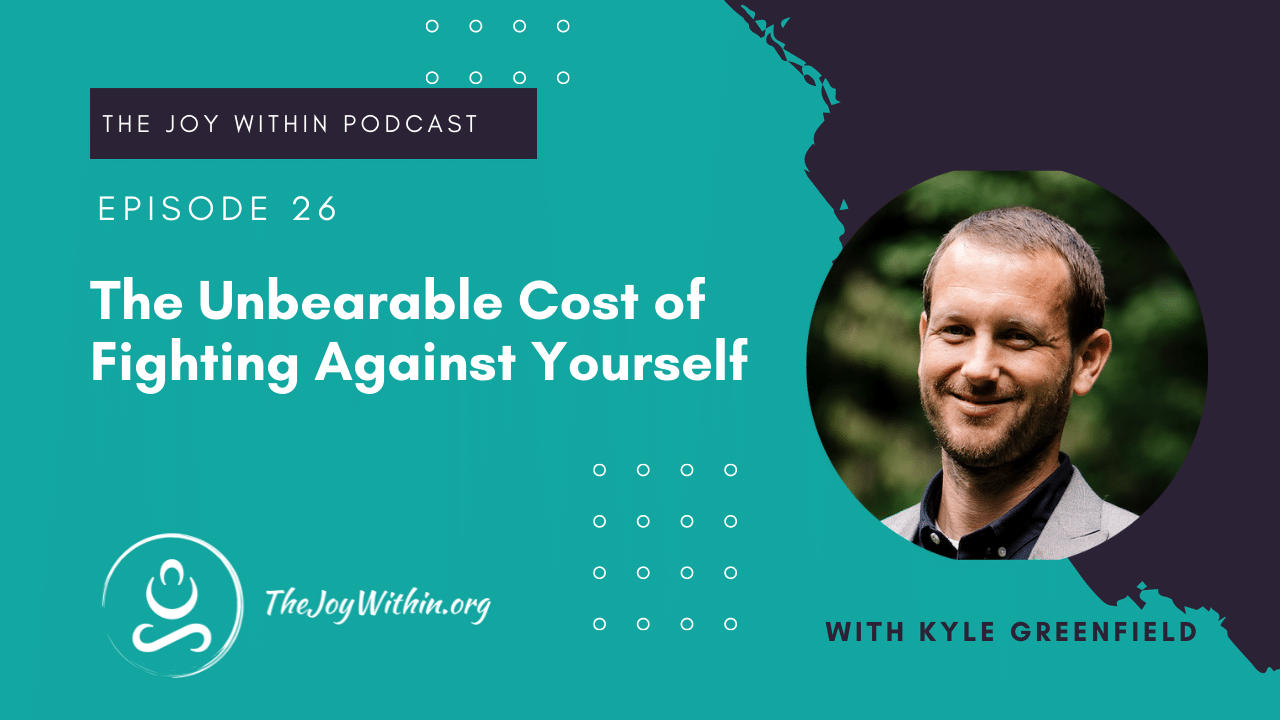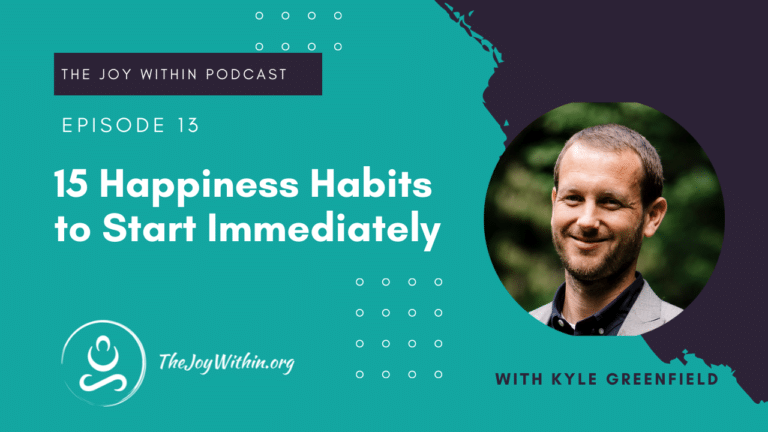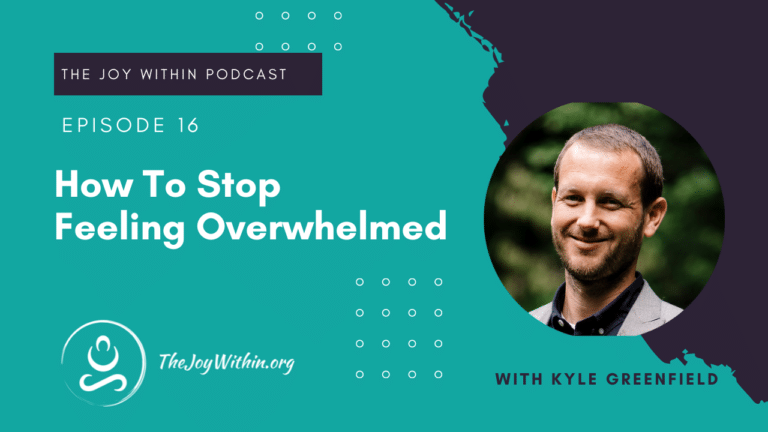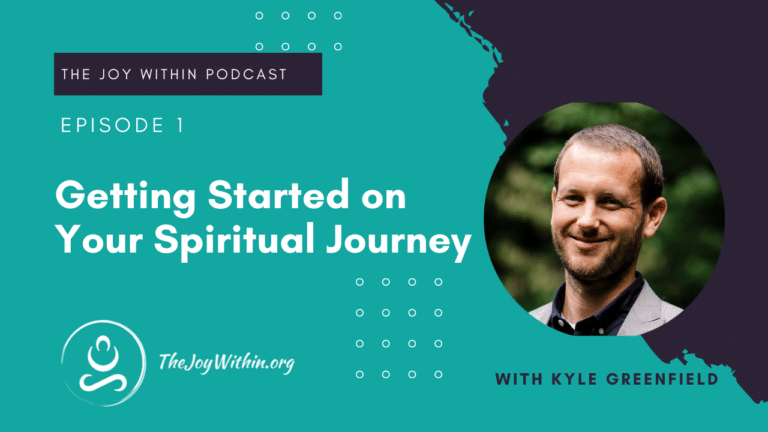Hello and welcome back to The Joy Within’s podcast. Today, we’re continuing with our series on the real cost of negativity. Last time we talked about the physical cost – the potential for serious health consequences of consistent stress and negative thinking. Today we’re going to talk about the emotional cost, and over the next few episodes we’ll turn to financial, relationship, and impact costs as well.
On one level, I think, the emotional cost of negative thinking is pretty obvious. When you think negative thoughts, you feel bad. If you don’t know that, it’s an absolute foundation for you to start paying attention to. Your thoughts drive your emotions. When you complain, or stress yourself out, or beat yourself up, you set yourself up to have a negative emotional response. And the more you do this, the worse you feel.
We talked about this a little bit last time, because it creates a vicious downward spiral. The negative thoughts and negative emotions feed off of each other and – often before you know it, before you realize there’s a problem – you get stuck in that pattern, and it becomes harder and harder to break out of.
So that first level is, I think, pretty straightforward. If your goal is to feel happy, or peaceful, or maybe even just slightly less stressed out, you have to recognize that your thoughts will push you in whatever direction you choose. That’s why the primary path we teach here at The Joy Within is so fundamentally simple: quiet the mind, become more aware of your thoughts, and then choose better ones, consciously and deliberately.
Of course doing that takes a bit of practice, and that’s what Happiness University is for. But that first connection – thoughts drive emotions – is, I hope, pretty easy to see.
And, if you’re not sure, you can always extrapolate it out. You can reflect on whatever your current emotional patterns are and ask: if you keep repeating that pattern, fast forward 10, 20, 30 years and look at what that means. Even if it doesn’t spiral – even if you just keep repeating exactly where you are, is that really how you want to spend your life? Do you want to be the type of person who when people ask you how you are, you say: “Oh, uhhh, ok, I guess. You know how it is.” Or, do you want to be the person you don’t even have to ask, because you can see it in their energy, their eyes light up and they’re always smiling, and you just know they’re doing really well. I know that’s the person I want to be, the one who lifts everyone up just by being there, without doing anything, because joy, peace, and well-being just radiate out of me.
And – I can tell you – I didn’t used to think that was really possible. I didn’t think it was real or genuine. But you absolutely can get to that point. But getting to that point starts with taking an honest look at where you are, wherever that might be, emotionally on a day to day basis. and seeing what that cost really is. Then you can start asking yourself: what thoughts, habits, beliefs, and actions need to change to get to where you want to be?
That’s the first step. And like I said, I think it’s pretty obvious, logically – when you think about it – but there’s a world of difference between understanding and applying these ideas, between thinking “Yeah, I guess that makes sense,” and actually sitting down and reflecting on it, looking at how, specifically, these concepts play out for you, and then deciding that you’re not willing to pay that price. you’re not willing to just “get through” life, when you have the ability to feel happy, inspired, and fulfilled literally every single day. So if you haven’t done that – take the time today to really reflect on it, internalize it, look at that cost straight on, and decide what you’re going to do.
But, that’s not the only level I want to talk about today. There’s a much deeper emotional cost a lot of us are forced to pay for our negative thoughts – and that’s the cost of fighting against ourselves.
__
Tell me if this sounds familiar. You have a bad day – maybe you’re a bit down, frustrated, upset, stressed – it doesn’t matter which, or what happened or why. You’re upset, and you know you’re upset.
And, even though you’re upset, part of you knows you could – or maybe even should – feel better than you do. You should be able to snap out of it. You should be able to let it go, but you can’t. So now, in addition to being upset for whatever you were upset about in the first place, now you’re also mad at yourself for being upset.
Sometimes, you might be aware of what’s happening – sometimes you know you’re mad at yourself for being in a bad mood – and sometimes not, and that’s ok. But whether it’s conscious or unconscious, I think this split almost always happens, because we tend to have deep-seated beliefs that negativity is bad.
That’s a whole other topic, in and of itself, but the point is – whether you are aware of it or not, your energy splits. You pit one part of yourself against the other, because your subconscious can’t reconcile the fact that you are simultaneously having a negative emotion and believing you shouldn’t have that emotion.
Subconsciously, you’re trying to reject your current state. But, what is, is, so you can’t reject it. Your resistance just creates more inner turmoil.
When you fight against yourself you not only block yourself from resolving the conflict internally, but you also put the brakes on whatever you’re trying to do or achieve externally as well. But, actually, it’s worse than that, because if you’re in a car and you slam on the brakes, you just come screeching to a stop, but when you fight against yourself, the inner conflict throws you around in all sorts of directions, so it’s actually more like being in a car when one wheel is locked. You try to move forward, but you just wind up spinning wildly in circles. So you literally can’t do anything.
But, that’s not even the worst cost. Because – hopefully – you’re not going to have a bad day every day. Even if you spin out today, you can still wake up tomorrow and get on with your life.
Except for one problem. You haven’t resolved anything. So long as you have this fundamental inner conflict, it’s going to come up again, because negativity is a part of life. You’re going to have another bad day. Being happy isn’t about trying to hide from every potential problem and setback. If you don’t resolve that inner conflict – if you don’t learn how to stop beating yourself up – every time the cycle repeats, it will strengthen a disempowered version of yourself.
Fighting against yourself strips you of your power, not just because you’re wasting energy, but because you’re chipping away at your own, more positive, more empowering beliefs.
When you are feeling negative and you resist that negative emotion (whether consciously or unconsciously), you tell yourself the story that you are not enough. That you can’t do it. That you shouldn’t be in that position. It’s the equivalent of calling yourself a failure, over, and over, and over again. And no one deserves that.
If you see yourself in that position, don’t worry. There are many strategies you can use to deal with it. But, the first step is always awareness. Making the unconscious, conscious, because – like I said – I think a lot of times this happens automatically, and a) we don’t even realize that it’s happening, and b) we don’t acknowledge the severity of it. So, just take a few minutes today to reflect on these ideas. Think abotu how they apply to you, ask yourself what patterns you see playing out in your life. And, when you’re ready, know that we’re here to help.




